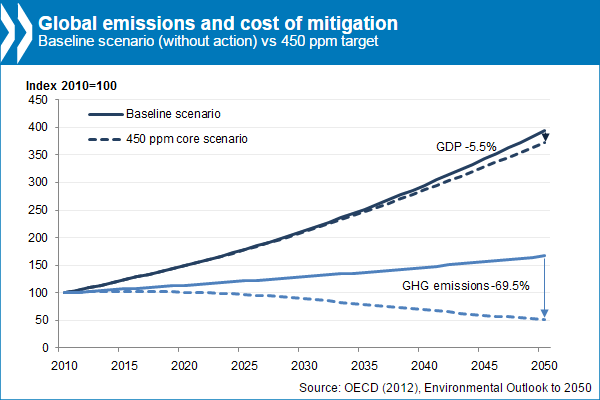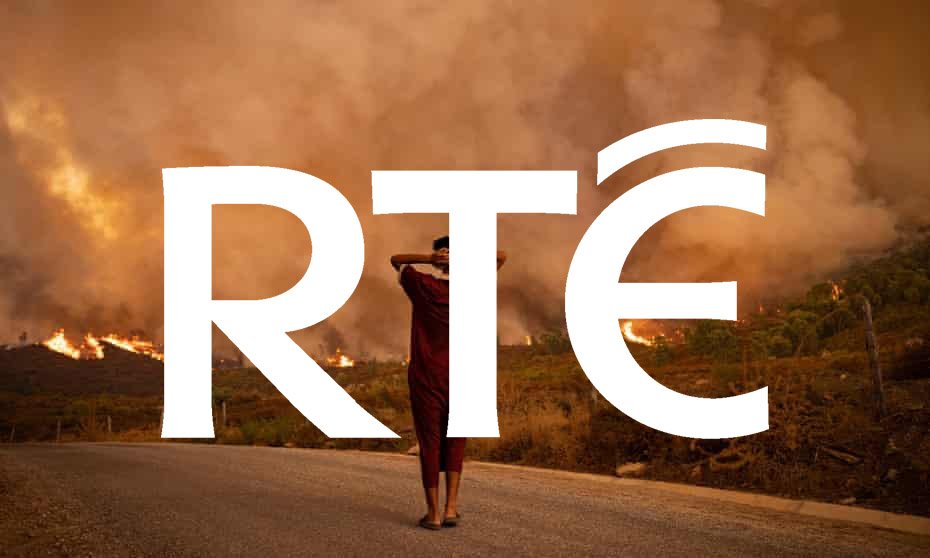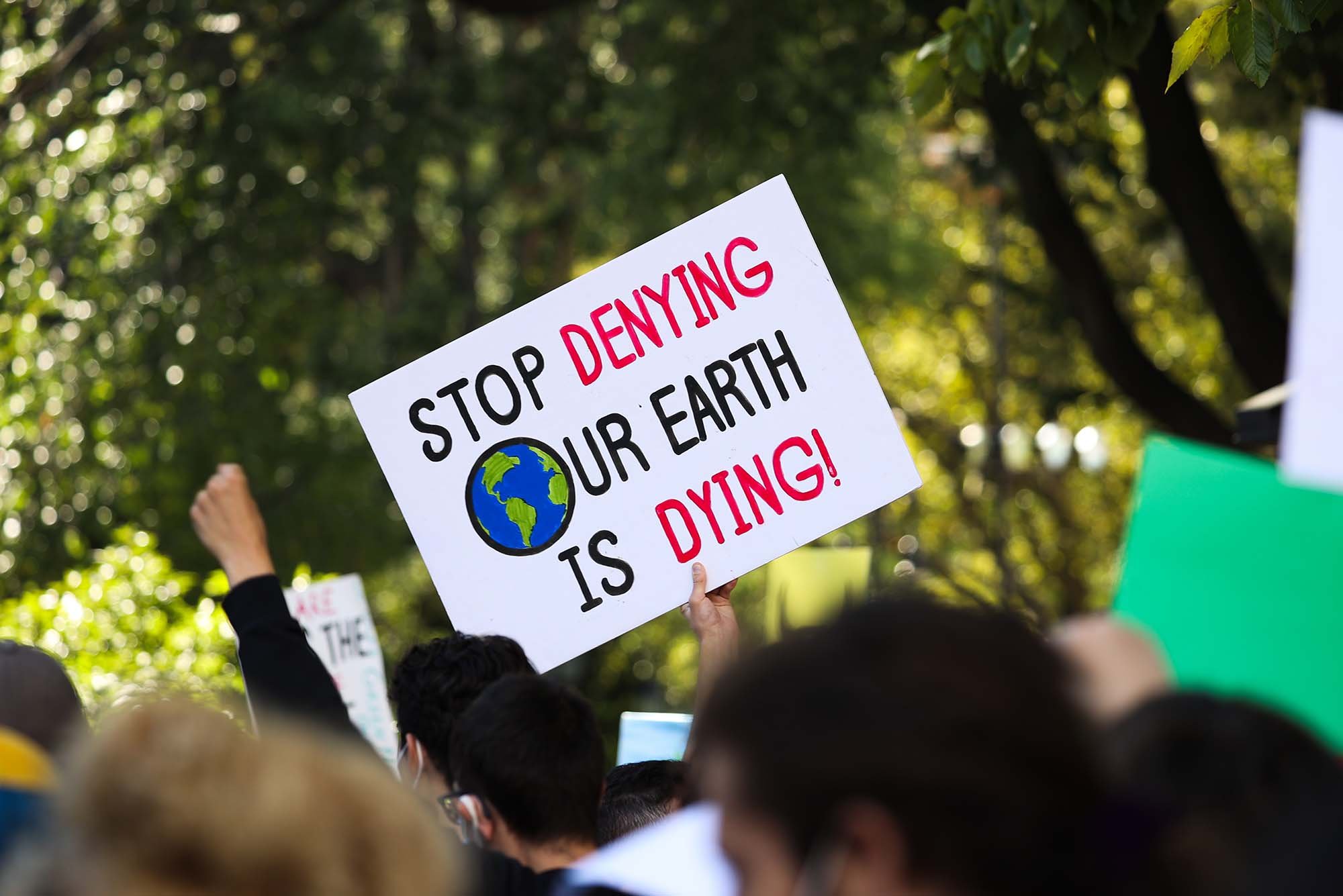
Conor Pass: The Case For A New National Park
Earlier this week it was announced that 1,400 acres of land surrounding the stunning Conor Pass were put up for sale. The breathtaking, but un-natural, vista has become world-renowned as an Irish landmark with its beautiful waterfalls and spectacular topography.
While it isn’t the first time that the land has been put up for sale – it was listed at a sale price of €5 million in 2007 – the dual Biodiversity and Climate Crises have continued to deteriorate at such a rapid pace that the public response to its proposed sale is significantly different from the last time.
The proposed sale of the land has seemingly galvanised large swathes of the Irish community in a unified call to the Irish Government to put its money where its mouth is, and publicly demonstrate that its currently hollow promises on climate and biodiversity action are more than just hot air.
Make Your Voice Heard
News of the sale was greeted with great excitement and hope by many environmental and activist groups, who were joined by TDs and members of the public on social media expressing their support for the idea of creating a new national park.
This can be clearly seen in the petition created by Saoirse McHugh – Buy Conor Pass, rewild it, and make it a National Park – which has exceeded more than 5,500 signatures at the time of publication.
We contacted McHugh to find out more about her aims for the petition: “I started the petition in order to give somewhere for people to show their support. Rewilding has really captured people’s imaginations and its one of the few areas of reading that gives me real feelings of hope of the future.”
While many see Conor Pass as a place of natural beauty, it is sadly anything but. Grazing has stripped the land of the native forest that would have once covered it, and stops anything but grasslands growing. Credit: Wikicommons
“Its so rare for a parcel of land that size to come up for sale in Ireland, and such a big opportunity for the State to create a new national park. What’s not obvious when driving through the countryside is that, apart from some areas with open mountains, you have very little access to green areas unless you’re a landowner.”
“The alternative to State purchase, where a large fund or a wealthy individual buys it with no thought for nature, or people’s access, is a terrible thought. While some have argued that it is a high valuation for the land and that the owner should gift it to the State – both of which I agree with – it is still a small asking price for the opportunity that it holds as a national park, and perhaps the first one created with the restoration of nature in the forefront of everybody’s minds.”
“Our current national parks have been terribly managed in general with grazing and burning still taking place on them but hopefully the purchase and rewilding of the Conor Pass would indicate a change in direction in how the State values and manages space for both people and nature”.
Her concerns about the management of current national parks were shared by Eoghan Daltun, author of An Irish Atlantic Rainforest, when we contacted him for comment:
“In general, I think the proposal is a great one, as a block of land this size rarely comes up for sale in Ireland. However, I’d add two caveats: first, our existing national parks are very badly managed. Killarney, for example, is an ecological disaster zone, severely overgrazed and over-run by rhododendron.”
“So the main priority really should be to sort out what we have, especially because there’s an extremely rich ecology in Killarney National Park while at Conor Pass there is not. The baseline there is extremely low, so it would be a long and uphill struggle to turn it into something rich.”
Ireland has the lowest levels of ecological integrity in Europe. Our focus on extraction - particularly through grazing agriculture - has left us with a wholly unnatural environment . Out of all 240 global nations and states, Ireland is 13th from the bottom in biodiversity intactness. Credit: Trans European Nature Network
While there is consensus that current management of our national parks is failing to deliver the changes needed to see native biodiversity thrive, there is something to be said for creating a new, large-scale rewilding project from scratch that will act as a public demonstrator for change.
By specifically requiring the Government to engage in rewilding the land with native flora and fauna, it would leave little room for them to hide if they do not deliver on their promises – as they have done with current national parks.
This is vital not only in garnering public support to hold the Government to task, but if the rewilded Conor Pass was a success, then it would provide vital public education not only about the current lack of ecological integrity, but also how we can change this.
People like Dalton have been fighting for a long time to move away from seeing nature as an extractive resource to a precious entity that should be valued most in its natural, untouched state.
Tangibly witnessing the change and being able to interact with it is invaluable for garnering greater public support and changing ideas about what a natural Irish landscape looks like – even over longer periods of time.
Cost vs Value
Despite a clear public call for the Government to take action and protect the land as a national park, Taoiseach Leo Varadkar has thus far acted true to form, by placing the focus on cost rather than value to Ireland and its people.
He said: “I think it’s fair to say that the State won’t be paying €10 million for it but we will be interested in talking to the owner about a reasonable price. Because I’d like to see us extend our national parks. Our national parks are a wonderful public asset.”
“And I’d like to see more of them. I’d like to see them bigger but this is taxpayers’ money and if there’s a reasonable price that we can agree with, then I think we’d like to take it into public ownership, but the price has to be reasonable.”
This is a typical response from the Irish Government – the same one that has failed to meet every emissions target that has been set, the same one that had to be taken to court by Irish citizens in order to put in place a realistic climate action strategy.
Its an issue that comes down to cost versus value.
This government has never valued action on the dual Biodiversity and Climate Crises, this is evident in their every inaction on the diverse range of issues that fall under these banners. Their neo-liberal politics means that they are focused solely on profiting in the short-term, while ignoring that expenditure on these crises will rise with every year of inaction.
While the Taoiseach talks about “reasonable prices” for the taxpayer, he wilfully ignores that the State gave the aviation industry a €234 million tax exemption on fuel in 2020, or that the State offered a total of €2.2 billion in fossil fuel subsidies that year.
He can’t be bothered to find €10 million to create a new, rewilded national park, but he is happy to prop up the very fossil fuel industry that is the driving force of the Climate Crisis – the one that is responsible for 1,300 deaths in Ireland each year, and more than 8 million deaths worldwide annually.
By every possible metric, it is far cheaper to act on the dual Biodiversity and Climate Crises now - every year of delay adds more cost. The graph above is even working with conservative figures at the incredibly high rate of 450ppm (pre-industrial levels stood at 280pp). Credit: OECD
Based on current projections, we could buy the Conor Pass ten times over if the National Maternity Hospital was on budget, or – at the current list price of €7,000 per acre – the Government could have bought 1.8 million acres with the tax money that they handed back to Apple.
What Are They Waiting For?
The real answer is that Ireland can’t afford not to take this opportunity in the face of the ever-worsening dual Biodiversity and Climate Crises.
The Irish Government have systematically failed on every front to meet every promise and legal requirement on these issues and have wasted much of the precious little time we have to avert the worst outcomes of the Climate Crisis.
It has been clear for some time that their declaration of a Climate Emergency in 2019 was little more than a PR exercise undertaken by people who either didn’t understand what it meant, or who just didn’t care.
The petition to convert Conor Pass to publicly-owned land ultimately represents hope and a push for progress – but it also sends a clear message that governmental inaction on these vital issues will come at a heavy price at the next election.
We encourage all our readers to join us in signing the petition, which can be found here.
What To Read Next
RTÉ Refuses To Address Climate Coverage Failings
RTÉ refuses to be transparent or accountable for its continued failings in reporting the severity, scale and urgency of the Climate Crisis
RTÉ and the Climate Crisis
Eight months on from Jon Williams' public apology for RTÉ News' failure to properly cover the Climate Crisis, we investigate what has changed, and how far the national broadcaster has to go






